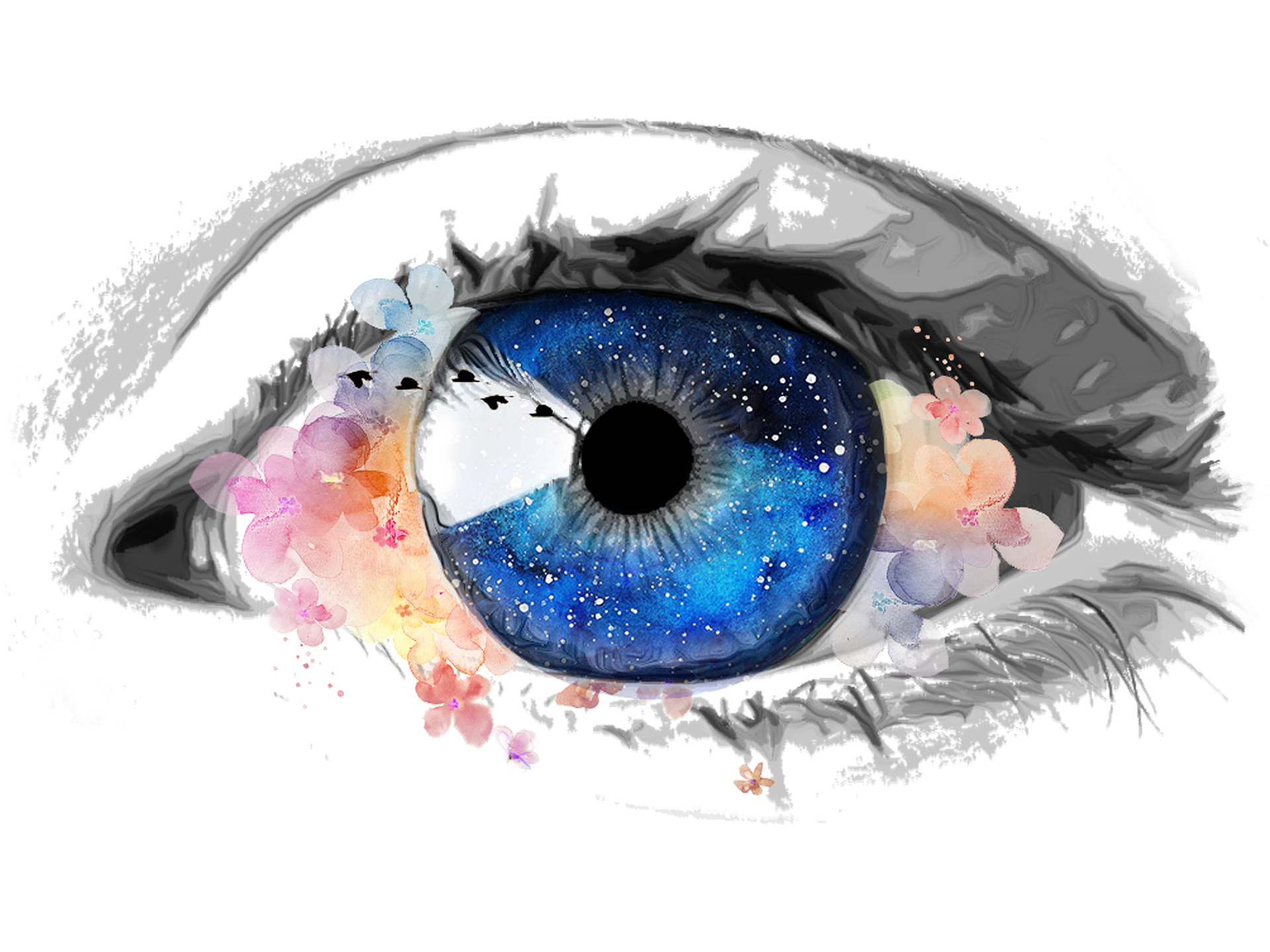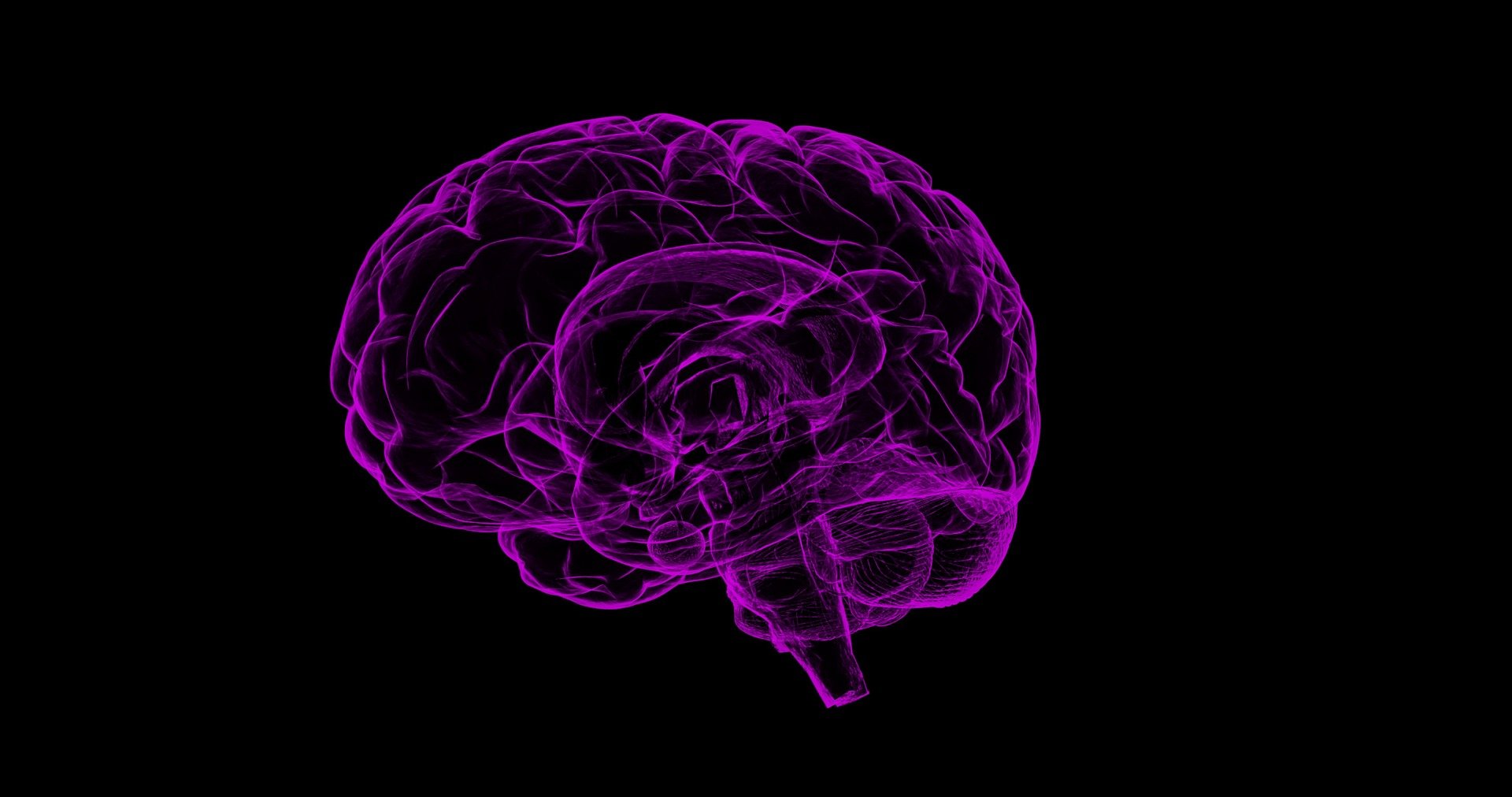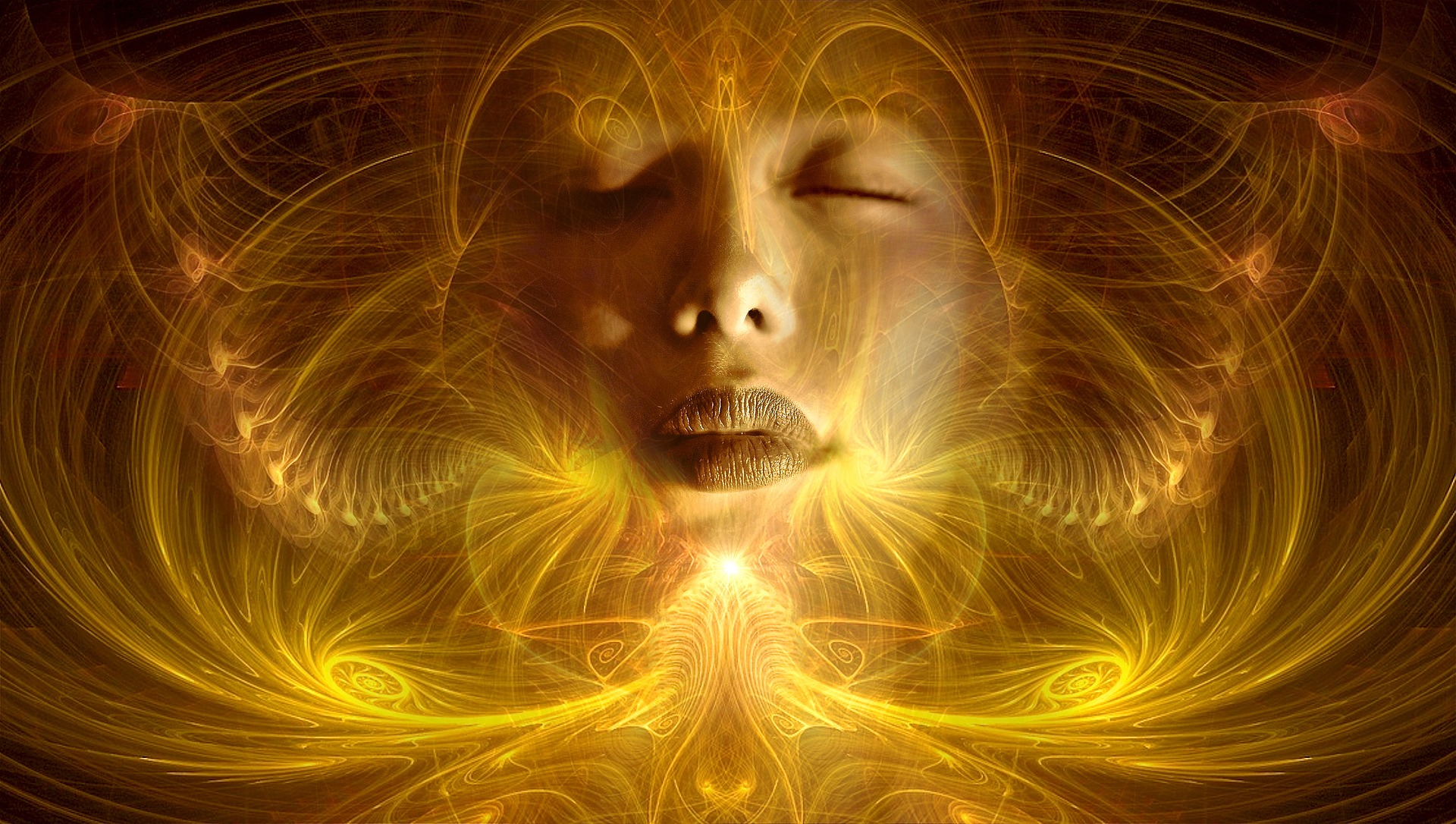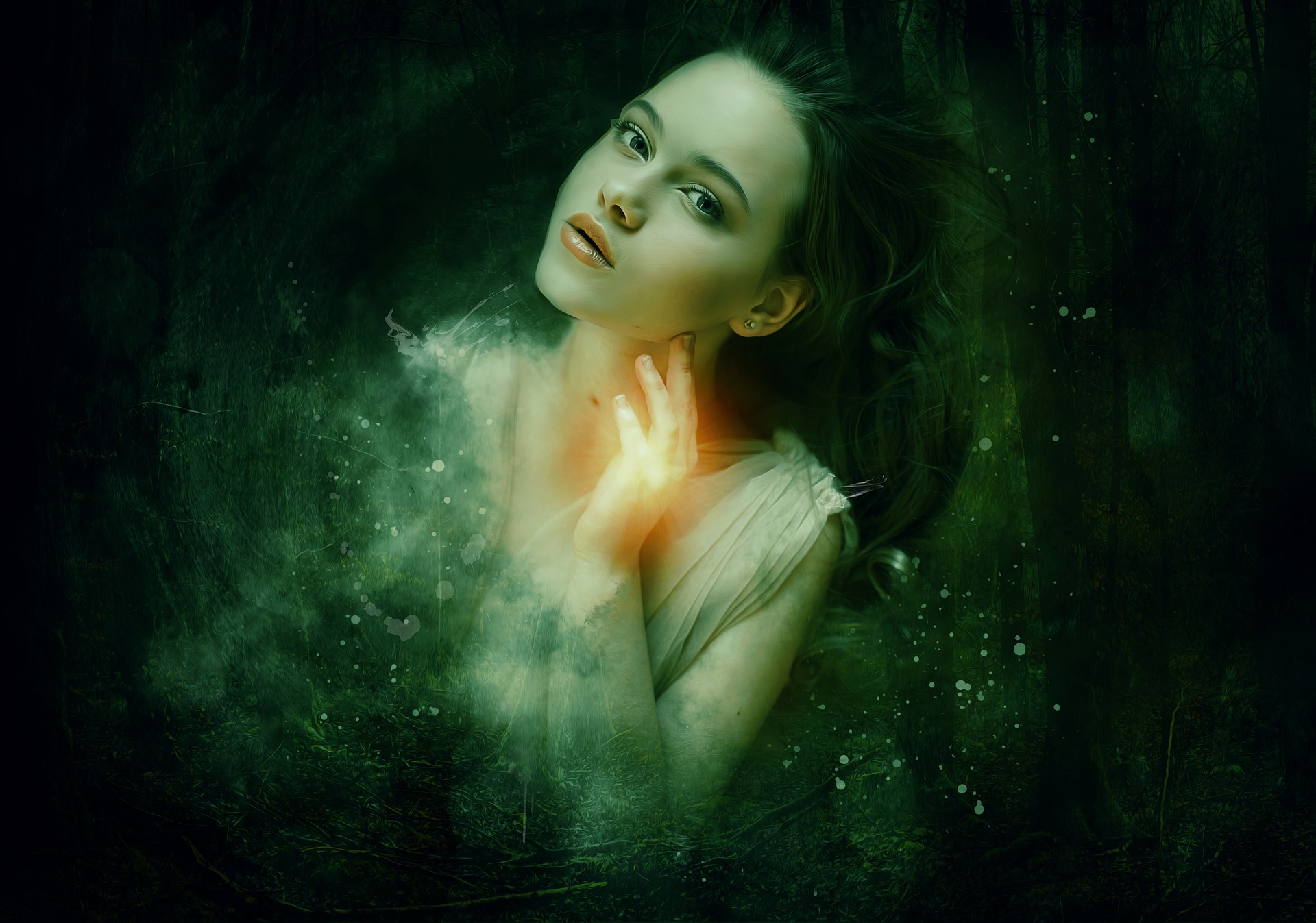
Image by Daniel Hannah from Pixabay
Español
Indudablemente, el sentido de la vista es el más importante entre los que asisten al ser humano. Y aunque los otros no funcionen a cabalidad, la visión por si misma nos permitiría interactuar con relativo éxito en nuestro entorno. La mala noticia es que, por diferentes razones podemos nacer sin este sentido o ser privados de él en algún momento de la vida. Uno de los aspectos más resaltantes en las personas que han perdido la visión o que han nacido sin tal capacidad es la gran agudeza y desarrollo que pueden experimentar sus otros sentidos. Hay ciegos que pueden saber cuándo hay alguien a su alrededor, aunque este último no haga el menor ruido y decimos el menor ruido porque sus oídos pueden captar el más mínimo rumor. Por el tono de voz son capaces de conocer con gran precisión los estados de ánimo de las personas, consiguen reconocer el valor de objetos como los billetes al tenerlos en sus manos y pueden hacer otras cosas que demuestran el gran desarrollo de sus sentidos. Y esto obedece a la necesidad que tiene el individuo de adaptarse a las circunstancias, de manera que si un sentido no funciona los otros cuatro se agudizan para suplir la falta de aquel.
English
Undoubtedly, the sense of sight is the most important among those that assist the human being. And although the others do not work properly, the vision by itself would allow us to interact with relative success in our environment. The bad news is that, for different reasons, we can be born without this sense or be deprived of it at some point in life. One of the most outstanding aspects in people who have lost their vision or who were born without that ability is the great acuity and development that their other senses can experience. There are blind people who can know when someone is around them, even if the latter does not make the slightest noise and we say the least noise because their ears can pick up the slightest rumor. By their tone of voice, they are able to know people's moods with great precision, they manage to recognize the value of objects such as banknotes by holding them in their hands and they can do other things that demonstrate the great development of their senses. And this is due to the individual's need to adapt to circumstances, so that if one sense does not work, the other four are sharpened to make up for the lack of that one.

Foto de Eren Li en Pexels
Ahora bien, tal deficiencia no afecta en absoluto los otros aspectos naturales o biológicos del ser humano como la necesidad de dormir, y por supuesto, soñar. Tal como hemos indicado en el post anterior, los sueños, lejos de ser una triste sucesión de imágenes y recuerdos producto de la mente, constituyen un momento en el que el espíritu sale del cuerpo e interactúa en el plano espiritual ejerciendo aptitudes propias de dicho plano. Pero… ¿Cómo son los sueños de los ciegos? He aquí lo inquietante del asunto y la respuesta podría echar por tierra la teoría que acabamos de esbozar: la salida del espíritu mientras dormimos. Y es que la curiosidad por las capacidades de los ciegos ha estimulado diversos estudios y algunos de ellos se han centrado en sus sueños. En tales investigaciones se ha puesto de manifiesto una increíble realidad: los ciegos en sus sueños siguen siendo ciegos.
Now, such a deficiency does not affect at all the other natural or biological aspects of the human being such as the need to sleep, and of course, dream. As we have indicated in the previous post, dreams, far from being a sad succession of images and memories produced by the mind, constitute a moment in which the spirit leaves the body and interacts on the spiritual plane. But ... How are the dreams of the blind? This is what is disturbing about the matter and the answer could destroy the theory that we have just outlined: the exit of the spirit while we sleep. And it is that curiosity about the abilities of the blind has stimulated various studies and some of them have focused on their dreams. In such investigations an incredible reality has been revealed: the blind in their dreams are still blind.

Image by Raman Oza from Pixabay
De manera que este argumento derrumba por si solo la tesis de que el espíritu sale del cuerpo mientras dormimos. Deberíamos aceptar entonces lo que señala la ciencia, es decir que los sueños no son más que un conjunto de imágenes y sonidos producto de nuestros recuerdos y que son proyectados por el cerebro mientras dormimos. Esto explicaría que en sus sueños los ciegos sigan siendo tal porque el ser ciegos es el principal recuerdo que les presenta la mente mientras duermen. Y es que se ha determinado que el ser ciegos mientras se sueña es proporcional al tiempo que se ha permanecido sin poder ver. En encuestas realizadas a personas ciegas se determinó que quienes han nacido desprovistos de la visión siempre se han visto interactuando en sus sueños como ciegos. Pero cuando la perdida ha sobrevenido con posterioridad, producto de accidentes u otras patologías, los encuestados han indicado que los primeros días después del incidente han soñado tal cual lo hacían antes, no obstante, después de algunos meses o años ya han comenzado a “ser ciegos” también en sus sueños. Por consiguiente, hay razones mayores para apoyar la concepción de que los sueños son recuerdos presentados por la mente mientras dormimos.
So this argument by itself demolishes the thesis that the spirit leaves the body while we sleep. We should then accept what science indicates, that is to say that dreams are nothing more than a set of images and sounds product of our memories and that are projected by the brain while we sleep. This would explain that in their dreams the blind continue to be such because being blind is the main memory that the mind presents to them while they sleep. And it is that it has been determined that being blind while dreaming is proportional to the time that has remained without being able to see. In surveys of blind people, it was determined that those born without vision have always seen themselves interacting in their dreams as blind people. But when the loss has occurred later, as a result of accidents or other pathologies, the respondents have indicated that the first days after the incident they have dreamed as they did before, however, after a few months or years they have already begun to “be blind people” also in their dreams. Consequently, there are greater reasons to support the view that dreams are memories presented by the mind while we sleep.

Image by Stefan Keller from Pixabay
Pero… ¿No habrá otra explicación?
En nuestro último post hablábamos sobre la salida del espíritu del cuerpo mientras dormimos y la relación entre nuestros sueños y lo que ocurre después de morir y concluimos que entre uno y otro la única diferencia que existe es la posibilidad de retornar al cuerpo cuando dormimos ya que en la muerte la salida es definitiva. De manera que lo que ocurre en el más allá es lo mismo que ocurre cuando dormimos. Y en nuestro primer post hablábamos sobre el hecho de que algunas personas al morir no tienen conciencia de que están muertos por lo que son incapaces de dar ese paso completo al más allá o “ir hacia la luz”.
¿No podría concebirse entonces que en los sueños los ciegos no logran percatarse de que están soñando o que si lo hacen no logran comprender que ya su sentido de la vista no es “inexistente”?
¿Deberíamos asumir que los ciegos con ciertas preparaciones previas podrían “recuperar la visión” mientras sueñan? En efecto hay ciertas maneras en las que los estudiosos de algunos temas instruyen sobre el desarrollo de capacidades mientras se duerme, una de ellas, el viaje astral consciente o controlado. Por otra parte, nuevos estudios han demostrado que mientras duermen, pese a percibir sensaciones suministradas por el resto de los sentidos algunos ciegos pueden tener experiencias visuales.
But ... Is there no other explanation?
In our last post we talked about the exit of the spirit from the body while we sleep and the relationship between our dreams and what happens after we die and we concluded that between one and the other the only difference that exists is the possibility of returning to the body when we sleep since in death the exit is final. So what happens in the afterlife is the same as what happens when we sleep. And in our first post we talked about the fact that some people when they die are not aware that they are dead so they are unable to take that full step into the afterlife or "go towards the light."
Could it not then be conceived that in dreams the blind fail to realize that they are dreaming or that if they do, they fail to understand that their sense of sight is no longer "non-existent"?
Should we assume that the blind with certain prior preparations could "regain their sight" while dreaming? In fact there are certain ways in which the students of some subjects instruct on the development of capacities while sleeping, one of them, the conscious or controlled astral travel. On the other hand, other studies have shown that while they sleep, despite perceiving sensations supplied by the rest of the senses, some blind people can have visual experiences.

Image by Enrique Meseguer from Pixabay
En consecuencia, podríamos afirmar que el hecho de ser ciego crea una conciencia que involucra tanto al plano corporal como al espiritual, al tanto de que al momento de salir del cuerpo aún tenemos la percepción de que no podemos ver. En otras palabras, se crea ese pleno convencimiento, el cual es perfectamente aplicable cuando estamos despiertos porque se fundamenta en patologías reales de los órganos visuales pero que indefectible arrastramos al plano espiritual donde no requerimos de los cinco sentidos para interactuar tal como lo haríamos en el plano físico.
Consequently, we could affirm that the fact of being blind creates a consciousness that involves both the body and the spiritual plane, aware that when we leave the body we still have the perception that we cannot see. In other words, this full conviction is created, which is perfectly applicable when we are awake because it is based on real pathologies of the visual organs but that we inevitably drag to the spiritual plane where we do not require the five senses to interact as we would in the physical plane.
.jpg)
Foto de Eren Li en Pexels
De manera, pues, que el hecho de que los ciegos sigan siendo ciegos en sus sueños no es un indicativo de que la premisa de la salida del espíritu del cuerpo no sea válida. De hecho, tal como hemos afirmado en el primer post, cuando morimos solemos continuar haciendo cosas que hacíamos cuando vivos (lo que contribuye a la imposibilidad de percatarnos de que estamos muertos) por lo que el hecho de seguir siendo ciegos después de la muerte o continuar siéndolo cuando estamos soñando podría obedecer a las mismas razones. Y probablemente esta imposibilidad en el estado onírico podría ser superada con una preparación previa, con la intención de ver mientras se sueña, con el nuevo convencimiento que en los sueños no existen imposibilidades visuales. Sin embargo, tales prácticas formarían parte de una capacitación profunda y representarían las mismas dificultades que el desarrollo de otras capacidades (como los viajes astrales conscientes).
Thus, the fact that the blind are still blind in their dreams is not an indication that the premise of the departure of the spirit from the body is not valid. In fact, as we have stated in the first post, when we die we usually continue doing things that we did when we were alive (which contributes to the impossibility of realizing that we are dead) so the fact of remaining blind after death or continuing to be so when we are dreaming could be due to the same reasons.
And probably this impossibility in the dream state could be overcome with prior preparation, with the intention of seeing while dreaming, with the new conviction that there are no visual impossibilities in dreams. However, such practices would be part of a deep training and would represent the same difficulties as the development of other capacities (such as conscious astral travel).
Congratulations @exilon! You have completed the following achievement on the Hive blockchain and have been rewarded with new badge(s) :
Your next target is to reach 500 upvotes.
You can view your badges on your board and compare yourself to others in the Ranking
If you no longer want to receive notifications, reply to this comment with the word
STOPCheck out the last post from @hivebuzz: